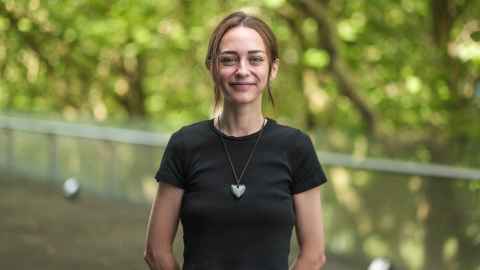Kupe Leadership Scholarship recipient to blaze the way for Māori health
13 April 2023
Kiana Young-Whenuaroa (Ngā Rauru, Ngāpuhi, Ngāti Maniapoto) is a recipient of the 2023 Kupe Leadership Scholarship, with goals to advocate for health equity for Māori.

A talented group of students have been selected for the 2023 Kupe Leadership Scholarship, students who are recognised to have potential to become transformational leaders and are committed to using their skills and knowledge to address social, environmental, and economic challenges.
Qualities such as compassion, integrity, humility, respect for others, a desire to serve and a big vision for Aotearoa New Zealand and its communities are also hallmarks of these scholars.
Among the recipients are Kiana Young-Whenuaroa who is pursuing a Bachelor of Health Science (Honours). Her goals are to advocate for health equity and to support Māori in achieving and maintaining their full health potential.
“I endeavour to make upstream changes that subsequently improve access, provision, and quality of healthcare and enhance the environments in which Māori reside,” she says.
“My overall goal is to do my part in the decolonisation of the health system and enable tino rangatiratanga for tangata whenua.”
The scholarship is designed to enhance their leadership skills and broaden their perspectives, including one-on-one mentorship with leaders in a range of fields. For Kiana, she says this opportunity is invaluable and will help her development in her personal, cultural, and academic journey.
“The scholarship fosters whakawhanaungatanga and kotahitanga between like-minded, determined individuals, which strengthens everyone individually,” Kiana says.
“The mentorship and development programs weave together a tapestry of values, diverse perspectives, and lived experiences that empower us to be the change we wish to see.”
Her mentor is Emma Espiner, a doctor and award-winning writer who is passionate about Māori health equity.
Health science is Kiana’s field of study and says she has witnessed first-hand the ongoing consequences of colonisation on Māori health.
“My field of study supports my endeavours to eradicate inequities that see the over representation of Tangata Whenua in negative health statistics,” she says.
“Through my studies, I can better understand how to dismantle the structural, upstream factors that contribute to poor health for Māori and learn to apply Kaupapa Māori and Matauranga Māori to my research and career.”
“By the end of my studies, I hope to contribute to the growing body of research on Māori health and health equity, specifically by incorporating Mātauranga Māori and Kaupapa Māori theory into my work.
“I aspire to develop sustainable, culturally grounded approaches to improving health outcomes for Māori and challenge dominant Western paradigms that prevail within the health system and in all other factors that influence hauora.”
The Kupe programme draws on the legend of the great Pacific explorer, Kupe, who, together with his wife, Kurumārōtini, is credited with discovering and naming Aotearoa. Their sense of adventure and courage in heading out across uncharted waters, drawing on their sailing skills and travelling by the stars, exemplifies the spirit needed by leaders in today’s uncertain and fast-changing world.
Media queries
Te Rina Triponel | Kaitohutohu Pāpāho Māori, Moana nui a Kiwa
E: te.rina.triponel@auckland.ac.nz